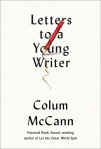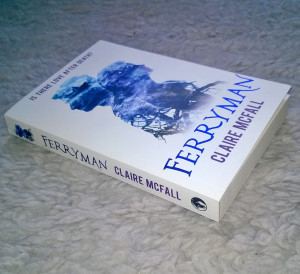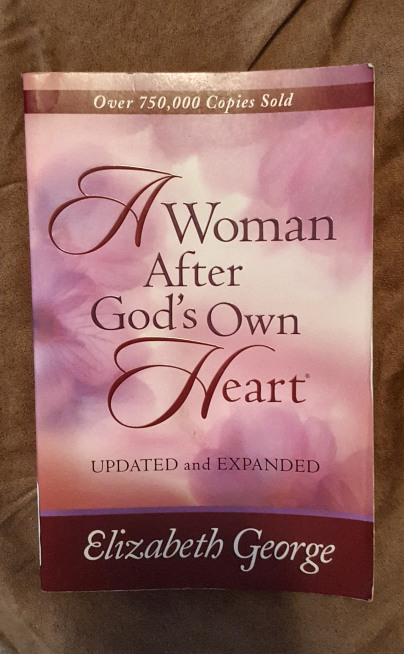find the original article in The Guardian

Nobody can advise you and help you, nobody, said Rainer Maria Rilke in Letters to a Young Poet more than a century ago. There is only one way. Go into yourself.
Rilke, of course, was right – nobody but yourself can help. In the end it all comes down to the strike of the word on the page, not to mention the strike thereafter, and the strike after that. But Rilke was taken by the request from a young writer, and he corresponded with Franz Xaver Kappus in ten letters over the course of six years. Rilke’s was advice on matters of religion, love, feminism, sex, art, solitude and patience, but it was also keyed into the life of the poet and how these things might shape the words upon the page.
This most of all, he says. Ask yourself in the most silent hour of night: must I write?
Everybody who has ever felt the need to write knows the silent hour. I have come across many such people – and indeed many such hours – during my writing and teaching life. I’ve been teaching now for the best part of 20 years. That’s a lot of chalk and a lot of red pencil. I haven’t loved every minute of it, but I’ve loved most. There’s been a National Book award for one student. A Booker prize for another. Guggenheims. Pushcarts. Mentorships. Friendships. But let’s be honest, there has been burnout too. There’s been weeping and gnashing of teeth. There have been walkouts. Collapses. Regret.
All of these students, bar none, are looking, in Rilke’s words, “to say ecstasies that are unsayable.” The unsayable indeed. The job is theirs. The ability to trust in the difficult. The tenacity to understand that it takes time and patience to succeed.
There are no rulesThere are three rules for writing a novel. Unfortunately, no one knows what they are. W Somerset Maugham
[The above, inserts the Blog Author, is my favorite quote of all time]. There are no rules. Or if there are any rules, they are only there to be broken. Embrace these contradictions. You must be prepared to hold two or more opposing ideas in the palms of your hands at the same time. To hell with grammar, but only if you know the grammar first. To hell with formality, but only if you have learned what it means to be formal. To hell with plot, but you had better at some stage make something happen. To hell with structure, but only if you have thought it through so thoroughly that you can safely walk through your work with your eyes closed.
The great ones break the rules on purpose. They do it in order to remake the language. They say it like nobody has ever said it before. And then they unsay it, and they keep unsaying it, breaking their own rules over and over again. So be adventurous in breaking – or maybe even making – the rules.
Your first lineThe first sentence of every novel should be: ‘Trust me, this will take time but there is order here, very faint, very human.’ Michael Ondaatje
A first line should open up your rib cage. It should reach in and twist your heart backward. It should suggest that the world will never be the same again. The opening salvo should be active. It should plunge your reader into something urgent, interesting, informative. It should move your story, your poem, your play, forward. It should whisper in your reader’s ear that everything is about to change.
But take it easy too. Don’t stuff the world into your first page. Achieve a balance. Let the story unfold. Think of it as a doorway. Once you get your readers over the threshold, you can show them around the rest of the house. At the same time, don’t panic if you don’t get it right first time around. Often the opening line won’t be found until you’re halfway through your first draft. You hit page 157 and you suddenly realise, Ah, that’s where I should have begun.
So you go back and begin again.
Open elegantly. Open fiercely. Open delicately. Open with surprise. Open with everything at stake. This, of course, is a bit like being told to walk a tightrope. Go ahead, then, walk the tightrope! Relax yourself into the tension of the wire. The first line, like the first step, is only the first of many, yet it sets the shape of what is to come. Try walking a foot off the ground, then two feet, then three. Eventually you might go a quarter mile in the sky.
Then again, you might stumble and fall. No matter. It is, after all, a work of the imagination. You won’t die trying.
At least not yet.
Don’t write what you knowThe inexecutable is all I’m interested in. Nathan Englander
Don’t write what you know, write towards what you want to know.
A writer is an explorer. She knows she wants to get somewhere, but she doesn’t know if the somewhere even exists yet. It is still to be created. Don’t sit around looking inward. That’s boring. In the end your navel contains only lint. You have to propel yourself outward, young writer.
The only true way to expand your world is to inhabit an otherness beyond ourselves. There is one simple word for this: empathy. Don’t let them fool you. Empathy is violent. Empathy is tough. Empathy can rip you open. Once you go there, you can be changed. Get ready: they will label you sentimental. But the truth is that the cynics are the sentimental ones. They live in a cloud of their own limited nostalgia. They have no muscularity at all. Remember, the world is so much more than one story. We find in others the ongoing of ourselves.
In the end your first-grade teacher was correct: we can, indeed, only write what we know. It is logically and philosophically impossible to do otherwise. But if we write towards what we don’t supposedly know, we will find out what we knew but weren’t yet entirely aware of. We will have made a shotgun leap in our consciousness. We will not be stuck in the permanent backspin of me, me, me.
As Vonnegut says, we should be continually jumping off cliffs and developing our wings on the way down.
The terror of the white pageThe pleasure of abiding. The pleasure of insistence, of persistence. The pleasure of obligation, the pleasure of dependency. The pleasures of ordinary devotion. Maggie Nelson
Don’t let the terror of the white page shrink-wrap your mind. The excuse that you have writer’s block is far too easy. You have to show up for work. You have to sit in the chair and fight the blankness. Don’t leave your desk. Don’t abandon the room. Don’t check the sports pages. Don’t open the mail. Don’t distract yourself in any way until you feel you have fought and tried. You have to put in the time. If you are not there, the words will not appear. Simple as that.
A writer is not someone who thinks obsessively about writing, or talks about it, or plans it, or dissects it, or even reveres it: a writer is the one who puts his arse in the chair when the last thing he wants to do is have his arse in the chair.
Good writing will knock the living daylights out of you. Very few people talk about it, but writers have to have the stamina of world-class athletes. The exhaustion of sitting in the one place. The errors. The retrieval. The mental taxation. The dropping of the bucket down into the near-empty well over and over again. Moving a word around a page. Moving it back again. Questioning it. Doubting it. Increasing the font size. Shifting it around again and again. Sounding it out. Figuring the best way to leave it alone. Hanging in there as the clock ticks on. Not conceding victory to the negative. Getting up off the ground when you’ve punched yourself to the floor. Dusting yourself off. Readjusting your mouth guard. Sustaining what you have inherited from previous days of work.
Don’t worry so much about your word count. Your word cut is more important. You have to sit there sharpening that red pencil or hitting the delete button or flinging the pages into the fire. Often, the more words you cut, the better. A good day might actually be a hundred words fewer than you had yesterday. Even no words on the page is better than no time at the page at all.
Just keep your arse in the chair. Arse in the chair. Arse in the chair.
Stare the blank page down.
Creating charactersThen the writing became so fluid that I sometimes felt as if I were writing for the sheer pleasure of telling a story, which may be the human condition that most resembles levitation. Gabriel García Márquez
Writing a character into being is like meeting someone you want to fall in love with. You don’t care (yet) about the facts of his/her life. Don’t overload us with too much information. Allow that to seep out later. We are attracted by a moment in time – a singular moment of flux or change or collapse – not by grand curricula vitae. So don’t generalise. Be specific. Go granular. The reader must fall in love with your characters quickly (or indeed, learn to hate them quickly).
We have to have something happen to them: something that jolts our tired hearts awake. Make it traumatic, make it mournful, make it jubilant, it doesn’t matter – just allow your reader to care for the physical body that your words evoke, the person behind the language. Later on in the story we can settle down with them and get to know them in a wider sense.
Sometimes we take a character from our own immediate lives and we build a new person upon that scarecrow. Or sometimes we take well-known characters in history and shape them in new ways. Either way we have a responsibility to write them into life.
In the end you should probably know your characters as well as you know yourself. You should be able to close your eyes and dwell inside that character’s body. The sound of her voice. The texture of her footsteps. Walk around with her for a while. Let her dwell in the rattlebag of your head. Make a mental list of who/what she is, where she comes from. Appearance. Body language. Unique mannerisms. Childhood. Conflicts. Desires. Voice. Allow your characters to surprise you. When it seems they should go right, send them left. When they appear too joyful, break them. When they want to leave the page, force them to stay a sentence longer. Complicate them. Conflict them. Give them forked tongues. This is what real life is all about. Don’t be too logical. Logic can paralyse us.
Nabokov says that his characters are just his galley slaves – but he’s Nabokov, and he’s allowed to say things like that. Let me respectfully disagree. Your characters deserve your respect. Some reverence. Some life of their own. You must thank them for surprising you, and for ringing the doorbell of your imagination.
Writing dialogueThe declared meaning of a spoken sentence is only its overcoat, and the real meaning lies underneath its scarves and buttons. Peter Carey
There are so many rules, or suggestions, when it comes to dialogue. Forget the ummm and forget the errrs: they don’t translate on the page. Try not to use dialogue to convey information, or at least a slab of obvious information. Interruptions are great. Try writing a conversation between three, four, five people. Let the dialogue work for itself. Use he said and she said, but avoid clumsy descriptions. Forget about the overblown gasping, exclaiming, insisting, bellowing.
Make your dialogue distinct from the surrounding description, not just in rhythm but in length too. It will break up the prose. Have it be a respite on the page, or have it tee up the words that are about to come. Make each character distinct. Give them verbal tics. And never forget that people talk away from what they really mean. Lies are very interesting when they emerge in speech. Make action occur within the conversation. Seldom begin in the beginning: catch the dialogue halfway through. No need for hellos or howareyous. No need for goodbyes either. Jump out from the conversation long before it truly finishes.
Even if using dialect, or patois, or Dublinese, you must realise that there is a reader at the end of the sentence. Don’t confuse them. Don’t knock them out of the story. A wee bit is enough to get a Northern Irish accent. Don’t go Oirish on yourself. Don’t fall into stereotype. No arragh bejaysus and begob. No overdone southern twang. It’ll make y’all wanna holler. No Jamaican overdose, mahn. No Bhrrooklyn nasal noise.
Study the masters. Roddy Doyle. Louise Erdrich. Elmore Leonard. Marlon James. And always remember that what we don’t say is as important as, if not more so than, what we do. So study the silences too, and have them working on the page. You soon find out how loud the silence really is.
Everything unsaid leads eventually to what is said.
Seeking structureA book is not an isolated being: it is a relationship, an axis of innumerable relationships. Jorge Luis Borges
Every work of fiction is organised somehow – and the best of them are more profoundly organised than they ever let on. Our stories rely on the human instinct for architecture. Structure is, essentially, a container for content. The shape into which your story gets is a house slowly built from the foundation up. Or maybe it’s a tunnel, or a skyscraper, or a palace, or even a moving caravan, driven forward by your characters. In fact, structure can be any number of things: you just have to make sure that it doesn’t become an elaborate hole in the ground into which we bury ourselves, unable to claw out.
Some writers try to envision the structure beforehand, and they shape the story to fit it, but this is so often a trap. You should not try to stuff your story into a preconceived structure. A proper structure mirrors the content of the story it wants to tell. It will contain its characters and propel them forward at the same time. And it will generally achieve this most fully when it does not draw too much attention to itself. Structure should grow out of character and plot, which essentially means that it grows out of language. In other words, the structure is forever in the process of being shaped. You find it as you go along. Chapter by chapter. Voice by voice. Ask yourself if it feels right to tell the story in one fell swoop, or if it should be divided into sections, or if it should have multiple voices, or even multiple styles. You stumble on through the dark, trying new things all the time. Sometimes, in fact, you don’t find the structure until halfway through, or even when you’re close to being finished. That’s OK. You have to trust that it will eventually appear and that it will make sense.
Language and plotPlot is, I think, the good writer’s last resort and the dullard’s first choice. Stephen King
We teachers, we editors, we agents, we readers, often make a mistake by concentrating too much on plot: it is not the be-all and end-all in a piece of literature. Plot matters, of course it matters, but it is always subservient to language. Plot takes the backseat in a good story because what happens is never as interesting as how it happens. And how it happens occurs in the way language captures it and the way our imaginations transfer that language into action.
So give me music then, young maestro, please. Make it occur the way nobody ever made it occur before. Stop time. Celebrate it. Demolish it. Slow the clock down so that the tick of each and every second lasts an hour or more. Take leaps into the past. Put backspin on your memory. Be in two or three places at one time. Destroy speed and position. Make just about anything happen. Maybe in this day and age we are diseased by plot. Let’s face it, plots are good for movies, but when over-considered they tend to make books creak. So, unbloat your plot. Listen for the quiet line. Anyone can tell a big story, yes, but not everyone can whisper something beautiful in your ear. In the world of film we need motivation leading to action, but in literature we need contradiction leading to action, yes, but also leading to inaction. Nothing better than a spectacular piece of inaction. Nothing more effective than your character momentarily paralysed by life.
The greatest novel ever written has very little apparent plot. A cuckold walks around Dublin for 24 hours. No shootouts, no cheap shots, no car crashes (though there is a biscuit tin launched through the air). Instead it is a vast compendium of human experience. Still, this doesn’t take away from the fact that every story ever told has some sort of plot (especially Ulysses, which perhaps has more plot than any).
PunctuationIt’s not just a throwaway thing (Comma) When I split an infinitive, God damn it, I split it so it will stay split. Raymond Chandler (in a letter to his editor)
It’s not a throwaway thing to tell you the truth. It’s not a throwaway thing, to tell you the truth.
Punctuation matters. In fact, sometimes it’s the life or death of a sentence. Hyphens. Full stops. Colons. Semicolons. Ellipses. Parentheses. They’re the containers of a sentence. They scaffold your words. Should a writer know her grammar? Yes, she should. Don’t overuse the semicolon; it is a muscular comma when used correctly. Parentheses in fiction draw far too much attention to themselves. Learn how to use the possessive correctly as in most good writer’s work. (Oops.) Never finish a sentence with an at. (Sorry.) Avoid too many ellipses, especially at the end of a passage, they’re just a little too dramatic … (See?)
Grammar changes down through the years: just ask Shakespeare or Beckett or the good folks at the New Yorker. The language of the street eventually becomes the language of the schoolhouse. It’s the difference between the prescriptive and the descriptive. So much depends, as William Carlos Williams might have said, upon the red wheelbarrow – especially if the barrow itself stands solitary at the end of the line.
But then again, a sentence can be over-examined. Good grammar can slow a sentence – or indeed a wheelbarrow – down. The perfect run-along of words can sound so stiff. Every now and then we have to disregard the serial comma, or leave our participles dangling, even in the rudest way.
Sometimes we make a mistake on purpose. Perhaps knowing the difference between a main clause and a dependent clause doesn’t matter so much so long as you can intuit the difference. On occasion we write a sentence that isn’t, in fact, correct, but it sings. And the question is: would you rather be the ornithologist or the bird?
Writers feel the grammar rather than knowing it. This comes from good reading. If you read enough, the grammar will come. Word.
ResearchThere are things known and there are things unknown, and in between are the doors of perception. Aldous Huxley
Research is the bedrock of nearly all good writing, even poetry. We have to know the world beyond our own known world. We have to be able to make a leap into a life or a time or a geography that is not immediately ours. Often we will want to write out of gender, race, time. This requires deep research.
Yes, Google helps, but the world is so much deeper than Google. A search engine can’t hold a candle to all the libraries in the world where the books actually exist, live, breathe, and argue with one another. So go down to the library. Check out the catalogues. Go to the map division. Unlock the boxes of photographs. If you want to know a life different from your own, you better try to meet it at least halfway. Get out in the street.
Talk to people. Show interest. Learn how to listen. You must find the divine detail: and the more specific the detail, the better. William Gass – the American author who says quite beautifully that a writer finds himself alone with all that might happen – once suggested, while invoking Maupassant, that we should never mention an ashtray unless we are swiftly able to make it the only one in the world.
Please remember that mishandling your research is also your potential downfall. At times we can pollute our texts with too much of the obvious. It is often a good thing to have space instead so that we can fill it out with imaginative muscle. Always ask yourself: how much research is enough? Don’t corrupt your texts with facts facts facts. Texture is much more important than fact.
Fail, Fail, FailNo matter. Try again. Fail again. Fail better. Samuel Beckett
Failure is good. Failure admits ambition. It requires courage to fail and even more courage to know that you’re going to fail. Reach beyond yourself. The true daring is the ability to go to the postbox knowing that it will contain yet another rejection letter. Don’t rip it up. Don’t burn it. Use it as wallpaper instead. Preserve it and reread it every now and then. Know that in the years to come this rejection letter will be a piece of nostalgia. It will yellow and curl and you will remember what it once felt like to throw your words against what everyone presumed would be your silence. Failure is vivifying. You know you’re better than it. Failure gets you up in the morning. Failure gets your blood circling. Failure dilates your nostrils. Failure tells you to write a bigger story and a better one.
And in the end there’s only one real failure – and that’s the failure to be able to fail. Having tried is the true bravery.
Throw it all awayOne does not discover new lands without consenting to lose sight of the shore for a very long time. André Gide
Sometimes, young writer, you just have to have the cojones to wipe the whole slate clean. Occasionally you know – deep in your gut – that it’s not good enough. Or you’ve been chasing the wrong story. Or you’ve been waiting for another moment of inspiration.
Often the true voice is not heard until long into the story. It might be a year of work, hundreds of pages, or even more. (One of the most liberating days of my writing life was when I threw 18 months of work away.) But something in you knows – it just knows – that everything you have written so far has just been preparation for what you are now about to write. You have finally found your north, your east, your west. No south, no going back.
So you have to throw it away. (OK, let’s be honest here: you don’t actually throw the pages away. Box them up or back them up, just in case you might be making a mistake.)
It is terrifying of course. You close the file, you bury the pages. Now you’re pageless and your back is truly up against the wall. So you open up another file, sharpen the pencil, and settle down once again.
Your last lineIf we are not sometimes baffled and amazed and undone by the world around us, rendered speechless and stunned, perhaps we are not paying close enough attention. Ben Marcus
Gogol said that the last line of every story was: “And nothing would ever be the same again.” Nothing in life ever really begins in one single place, and nothing ever truly ends. But stories have at least to pretend to finish. Don’t tie it up too neatly. Don’t try too much. Often the story can end several paragraphs before, so find the place to use your red pencil. Print out several versions of the last sentence and sit with them. Read each version over and over. Go with the one that you feel to be true and a little bit mysterious. Don’t tack on the story’s meaning. Don’t moralise at the end. Don’t preach that final hallelujah. Have faith that your reader has already gone with you on a long journey. They know where they have been. They know what they have learned. They know already that life is dark. You don’t have to flood it with last-minute light.
You want the reader to remember. You want her to be changed. Or better still, to want to change.
Try, if possible, to finish in the concrete, with an action, a movement, to carry the reader forward. Never forget that a story begins long before you start it and ends long after you end it. Allow your reader to walk out from your last line and into her own imagination. Find some last-line grace. This is the true gift of writing. It is not yours any more. It belongs in the elsewhere. It is the place you have created. Your last line is the first line for everybody else.
Colum McCann is the author of six novels and three collections of stories. Born and raised in Dublin, Ireland, he has been the recipient of many international honours, including the National Book Award, the International Dublin Impac Prize, a Chevalier des Arts et Lettres from the French government, election to the Irish arts academy, several European awards, the 2010 Best Foreign Novel Award in China, and an Oscar nomination. His work has been published in over 35 languages. He is the co-founder of the non-profit global story exchange organisation, Narrative 4, and he teaches at the MFA program in Hunter College. He lives in New York with his wife, Allison, and their three children.
 • Letters to a Young Writer: Some Practical and Philosophical Advice by Colum McCann is published by Random House. Order it from your favorite independent bookshop.
• Letters to a Young Writer: Some Practical and Philosophical Advice by Colum McCann is published by Random House. Order it from your favorite independent bookshop.





